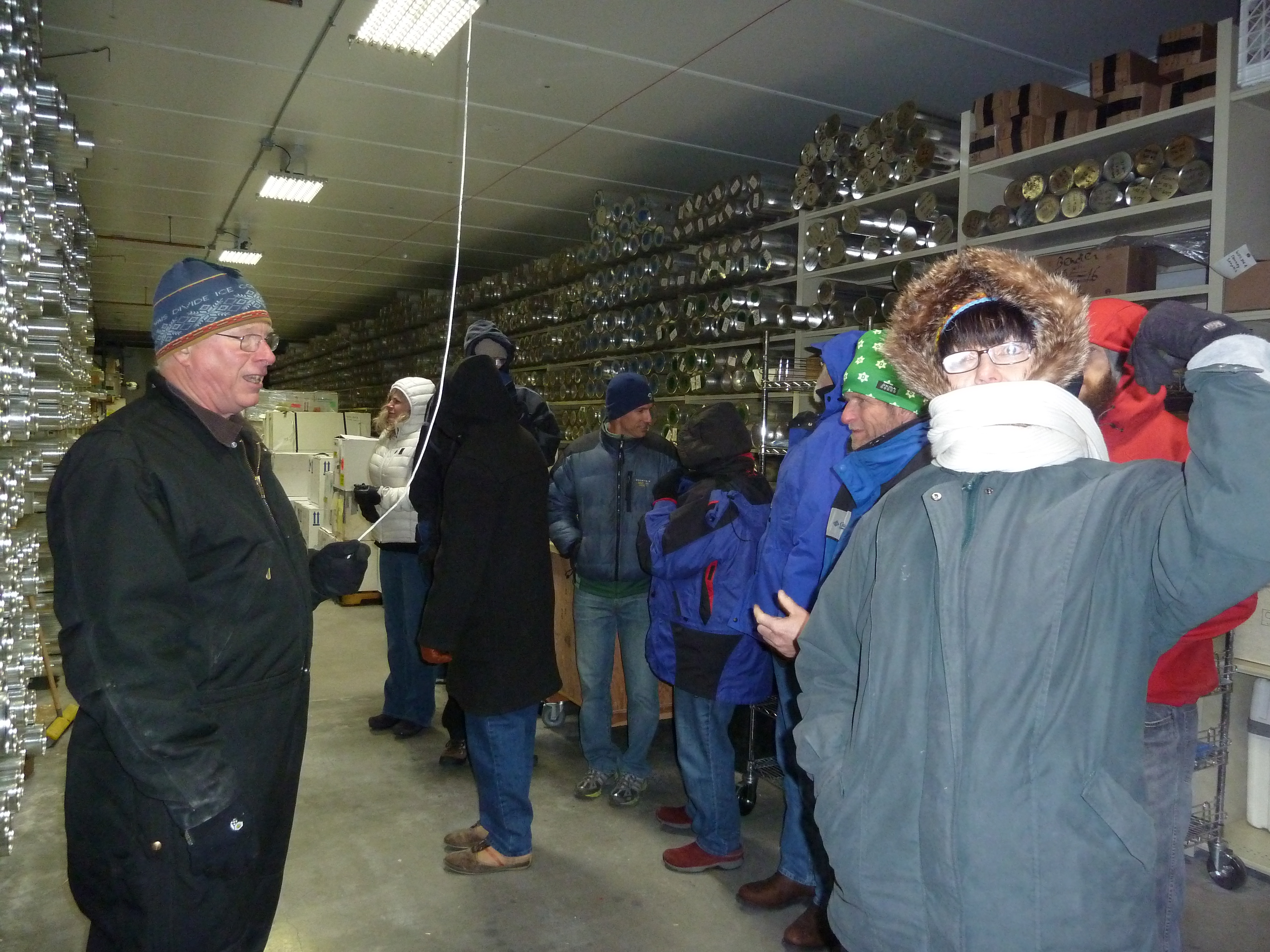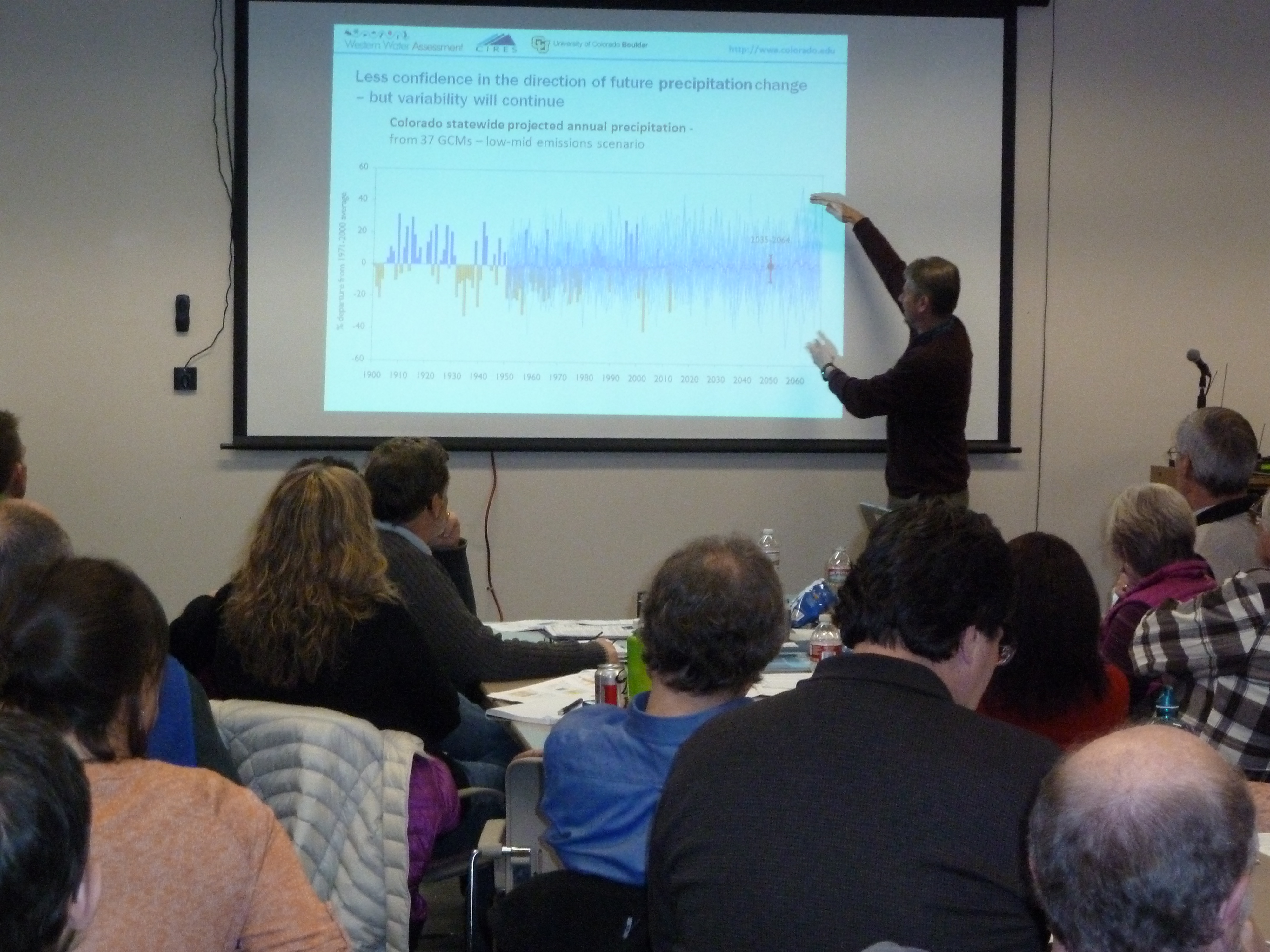By Lisa Wade, Riverside Technology
The thermometer on the wall displays a chilling -36°F as we enter the giant freezer. What could possibly need it to be this cold? The answer– ice cores collected from around the world.

Climate and Colorado’s Water Future Workshop participants tour the freezers in the National Ice Core Laboratory.
They are stored in the US National Ice Core Laboratory, which I was touring as part of the Colorado Foundation for Water Education’s Climate and Colorado’s Water Future Workshop. The Ice Core Lab is responsible for preserving ice collected from remote locations, such as Greenland, Antarctica, the Andes, and the Himalayas. Scientists drill the ice cores, package them up very carefully, and ship them back to the Ice Core Lab. Here, analysis on the ice provides insight into Earth’s climate. Scientists look at the oxygen isotopes, which are related to the temperature of the clouds. Heavier isotopes prefer to be in a liquid state and fall from clouds first. The lighter the water isotopes in the ice are, the colder the clouds were. Therefore, cold clouds mean that the poles were colder as well. By analyzing the water isotopes in the ice cores from the poles, scientists can determine the temperature and atmospheric composition in the past. My tour group lasted about 10 minutes in the freezer, but some researches can withstand the conditions for almost 2 hours. Talk about dedication!

Jeff Lukas with the Western Water Assessment gives a talk on linkages and feedback between climate, drought, the water cycle and ecosystems.
I had the privilege to attend CFWE’s workshop as a representative from Riverside Technology, inc. We were one of the sponsors for the workshop. Riverside knows that climate change is one of the greatest environmental challenges facing the world today. Colorado is no exception. During lunch, Jeff Lukas gave a presentation titled “Drought, Climate Change, the Water Cycle and Ecosystems: Linkages and Feedback in Colorado”. Jeff talked about how warming temperatures are projected to cause at 10% reduction in Colorado streamflow. In our state, water supplies are frequently stretched to the limit. A significant reduction in runoff has serious implications. Riverside has worked with Front Range water providers on assessing possible changes in the timing and volume of snowmelt under various climate change scenarios. Studies like this help water providers start planning now for an uncertain future. Learn more about Riverside’s work on climate change from our website: http://www.riverside.com/services/climatechange.aspx
One interesting point raised by both Jeff Lukas and Nolan Doesken, the state climatologist, is that Colorado is no stranger to variability. Each year brings unique challenges and rarely do two years look the same. We can experience big swings in temperature and precipitation on every time scale, from rapid changes in weather from yesterday to today, to big changes in total snowfall from one winter to the next. It is difficult to forecast exactly how climate change will impact our state as it is layered on top of our highly variable hydrology. But there will be changes. How are you preparing?

 Print
Print
Reblogged this on Coyote Gulch.
Great workshop CFWE! Looking forward to collaborating again in the future.
Yes, thank you for your support and it was great to have you join us!